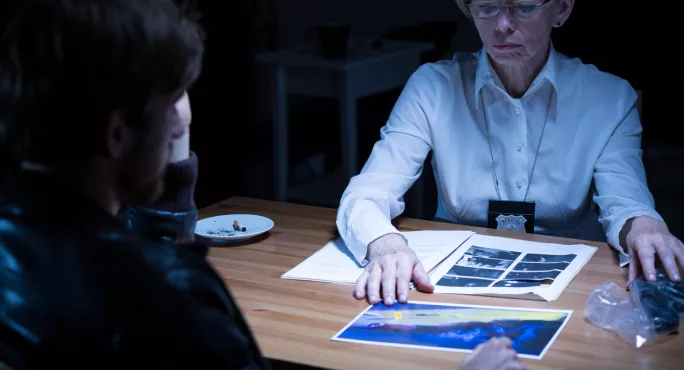Every school has them.
The legends that echo down the halls, stories that are passed down the generations.
“Did you hear about the time some Year 12s let three sheep into the building?” children will whisper.
Quick read: School leaders, sort out your routines
Quick listen: The problem with whole-school behaviour policies
Want to know more? Student leadership: how to nurture fledgling talents
“They labelled them 1, 2 and 4, and the SLT spent the entire day searching for the non-existent sheep number 3.”
Or the time when Year 11 covered the stairs with plastic cups, filled perfectly to the brim…and then, they set the fire alarm off.
Immortalised in school history as evil geniuses.
Cracking the tough cases
Investigating such legends, or even day-to-day miscreant incidents, is part and parcel of daily school life up and down the country.
And getting the truth out of children is an art form for any pastoral or behaviour lead.
Some children cannot hold their water, God love them: within three seconds, you already know exactly who blew the balloons up, who tied them to a panic alarm, and which creative little soul released them into the room with the highest ceiling in the school.
But what do you do about those nuts that refuse to crack? Those that are able to keep a poker face, even though you feel certain they’ve got nothing but aces, and sleeves full of jokers?
Here are three methods I use.
1. Feign knowledge
My favourite method of extracting a confession is as follows.
I sit them down and inform them that I already know what’s happened. Whether I actually do or not is beside the point: students need to believe that I do.
A number of other people have already told me the truth, I say, but because I’m such a fair and reasonable person, I would like to hear their side of it.
Most students spill their guts within seconds.
2. Take written statements
Another weapon in the arsenal is written statements. In a lot of schools, when you’re investigating an incident, a written account from students is the first step.
But what about when students claim they don’t know anything, despite the fact that you absolutely know that they do?
At this point, it is time to whip out the numerous, carefully procured, weighty statements from others involved. Once a student can see that others have given their statements, chances are that they’ll give theirs, too.
3. Threaten to view the CCTV
And for those students who still, in the face of all this evidence, remain stony-faced and silent? Well, for those students there is only one option: CCTV.
What is true is that most schools now have CCTV in a number of areas. What isn’t true is that it’s any good.
But does it matter if students don’t know that it only picks up about 3 inaudible seconds of footage of the wall of the building? Nope.
I simply put it to the suspect - sorry, student - that the next step is to view the incident on CCTV and if that doesn’t match their accounts, it will be easy to see who is lying.
Admitting defeat
Despite all these tricks, there will always be those students whose confessions never come.
Teenagers can be difficult to crack. There are some incidents where no matter the card you play, the truth will never out. It can be tempting in these situations to morph into a rabid TV detective and declare war on the suspects. But is this really the best use of your time?
I just don’t think it’s worth it. Instead of letting the red mist descend, sometimes you have to accept that you pick your battles. If, after you’ve exhausted all of your options, you’re still no further forward, admitting defeat is a painful necessity.
And really, after all the frustration and fury, you have to admit that this is one of the reasons why working with children will never be boring.
Occasionally their acts of mild defiance will be some of the funniest, most creative endeavours you’ll see.
So if, like me, admitting defeat leaves a bitter taste behind, console yourself with the fact that children are rarely smart enough to get away with something twice.
If you bide your time, victory will once again be yours in the not-so-distant future.
And to whoever got away with painting “The chamber of secrets has been opened” on the Year 7 playground: congratulations. You really are the stuff of legend.
Amy Forrester is an English teacher and director of pastoral care (key stage 4) at Cockermouth School in Cumbria





